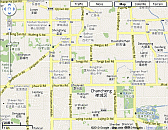|
|
| 1 Word
English |
Introduction:
This page introduces another new section for 2010.
The main aim is not to try and teach English language,
but rather to compliment class work with useful knowledge
and understanding words as spoken by British people.
It is intended for Chinese students who already have
a good understanding of the language. We will also
include specific American and Australian words that
may be used internationally, or have different meanings
entirely.
However, we are also adding an English version of
our popular 10 Word Cantonese, so complete beginners
know which are important words to learn first for
practical usage and business visit purposes. This
will assume the learner has a Chinese friend to support
their learning and pronunciation. Later we will add
our spoken versions for ease of use.
Main categories:
Phrases and Idioms
Advanced Sounds - like Greek letters and similar
Simple English Words
Business visit: Words and Phrases + etiquette
Swear Words
Pronunciation and Learning Guide
Unlike Chinese, English language has a different structure
and method of delivery. In general, Chinese words
are often grouped in two's (Sometimes singly or in
three's). English is not. Instead punctuation is used
to break down long sentences; or for effect!
First of all, please use phonetic (Lower case) letter
sounds as default for all words you say. There are
exceptions, and a few weird ones, but this generalisation
will help you greatly. Therefore you should actually
learn 'a, b, c = ah, bu, cu' instead of 'A, B, C'.
Many English words, especially long words are broken
down into syllabels which can make learning and usage
a lot easier. Long words often have standard groups
of letters at the beginning, end, or both. For example:
'un' and 'dis' are common starting groups; whilst:
'able', 'tion', ing, and 'ment' are common endings.
Occasionally words are entirely made of these parts
only, such as 'disablement'. Learning what these special
letter groups generally mean in their own right will
help you greatly to learn new words.
Tones. In English, tones are only ever used for expression
and exclamation. They are not normally used to differentiate
between different word meaning having the same sound,
which is usually accomplished by a hardly audible
change in either length or emphasis of a particular
letter. 'two, to and too', or 'for and four' are good
examples. Your hearing will need to be totally excellent
to perceive the difference when spoken correctly by
a foreign native English speaker.
Numbers. To use large English numbers effectively
you need to understand that they are based upon an
endless progression of sets of three. This also applies
to decimal numbers going smaller. By contrast this
is markedly different to Chinese, which has the highest
number of 10, 000. To use this system you will need
to change the way your mind works.
Listen, Learn, Copy, Use, Replace, Store.
Repeat the process.
Please accept that your English pronunciation is not
correct, and never will be uless you pay a lot of
detail to how native English speakers actually pronounce
the words. I don't care if this is American or British,
but you will need to constantly work on this.
When you speak to one of these people, listen to how
they are saying words. Store these sounds in your
brain, or even associate them with a certain individual.
Now overwrite the way you currently pronounce the
word, with the way they do. Store. Repeat this process
again and again. Eventually your English speaking
will become very good.
Problem Words:
The
In general, all but the most excellent Chinese speakers
of English misuse the word 'the'. It is very often
included when not required, and sometimes ommitted
when required.
Thirty vs Thirteen
I usually ask a Chinese person the figures, so that
I can understand if they mean 15 or 50, 18 or 80,
etc. This is a very big problem, and also identifies
them immediately as being Chinese.
Most Chinese English students have no problem with
the first part 'Thir'. the ending is the most important
part! Therefore you need to concentrate and say either
'Thir + T' or 'Thir + TEEEEEEEEEn'. I exaggerate for
emphasis, but not by much! Listen to native English
speakers and say the numbers exactly how they do.
Very important!
|
|
|
This information is as supplied by ourselves, and/or
other reliable sources. Please check this information
yourself as it may alter without notice, and whilst
we try our best to ensure it is correct, please do not
hold us responsible for any errors - this is intended
as a simple guide only |
|
| Foshan Maps |

|
|